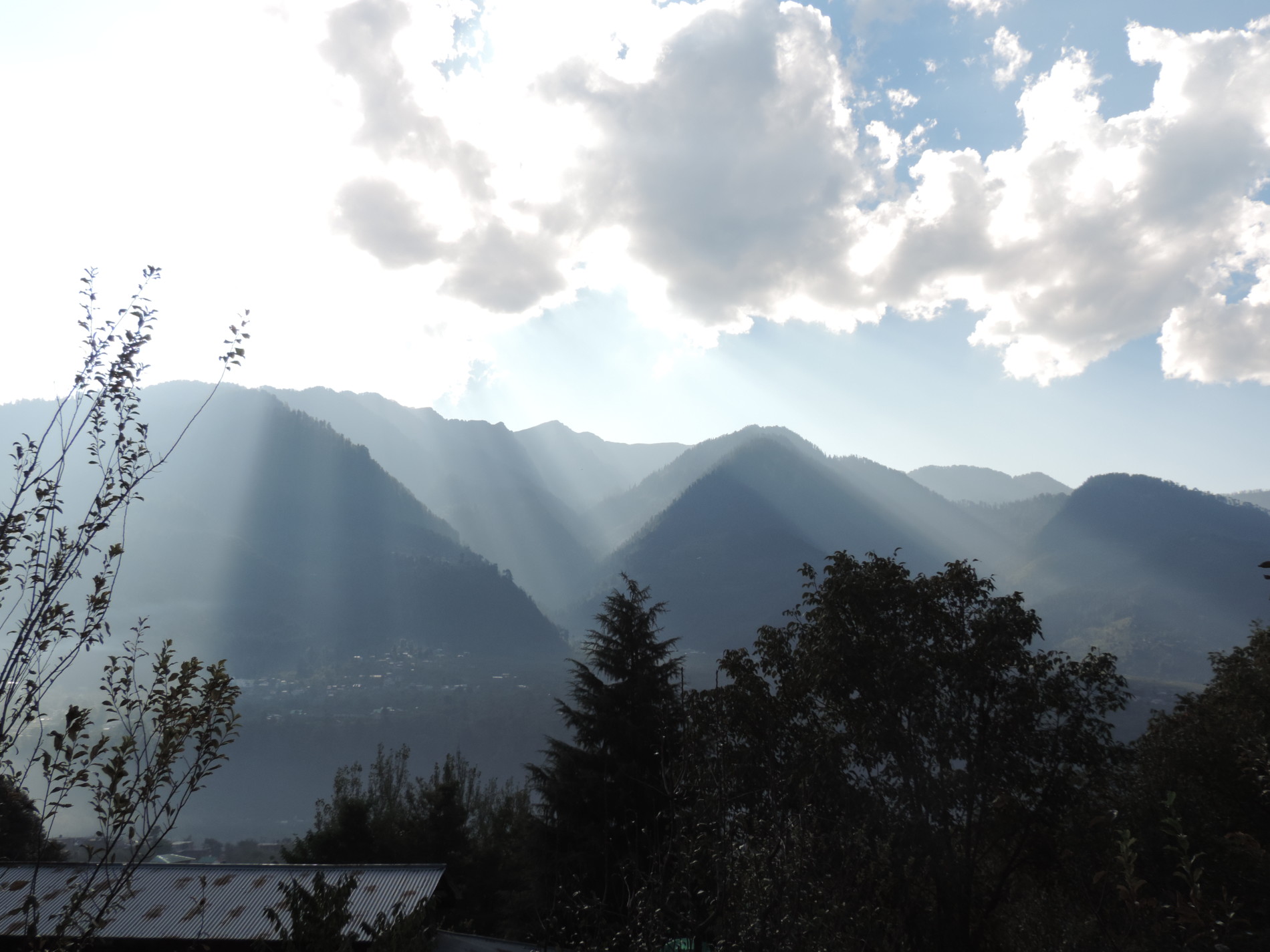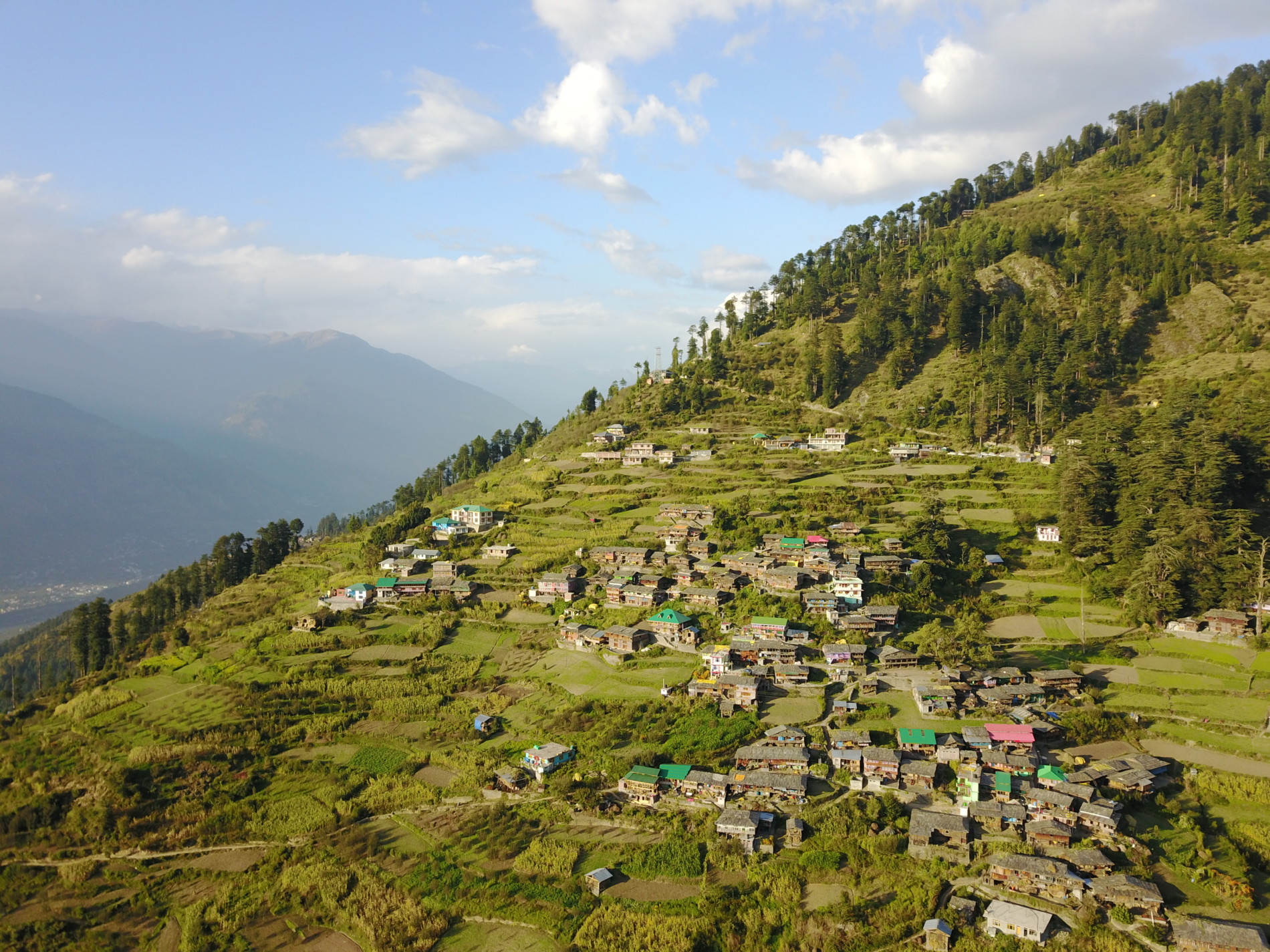All IFR field school applicants should familiarize themselves with IFR COVID-19 Practices before beginning the enrollment process. Program logistics are subject to change as health and risk management experts provide new recommendations and best practices. A Syllabus Addendum will be uploaded to each field school page and sent to all enrolled students with the latest operational and/or logistical changes to their program.
Overview
Historical archaeology studies material culture with the aid of historical records. Written records contextualize materiality but may or may not corroborate archaeological evidence. Kullu valley lies in the heart of the Himalayas in the hill state of Himachal Pradesh and is rich in archaeological sites and historical records relating to the sites. The valley is a focal point for many ancient myths in the Himalayas. As texts were frequently revised and chronologically problematic, an assessment of myths and their reality cannot be done on the basis of textual sources alone. There is an absence of early historic excavated sites in the valley, therefore, a historical archaeology and applied anthropological approach is useful for the study of religious art, architecture, oral traditions within the context of the landscape. Such an approach aids in evaluating the manifestation of myths and their reality in the Kullu valley.
The research goals aim at understanding the role of myths in the Kullu valley and how they influence architecture, rituals and use of space. The project will also help understand the interaction of contemporary people with sacred sites in the Himalayas where such myths are depicted and form a part of their daily life.
Instructors
The directors welcome emails and inquiries about the research elements of this project. More general information (tuition, health insurance, and payment schedule) can be found under the ‘Students’ tab above. Any further questions may be addressed to IFR staff. Additional details about research, course schedule, travel, accommodation, and safety can be found on the syllabus. Contacting the directors or the IFR office is encouraged and appreciated. It may help you determine if this field school is a good fit for you.
Testimonials
The IFR Field School, India: Himalayan Myth and Reality, was a wonderful experience that will count among the most impactful episodes of my life. Through this program, I had the opportunity to return to Himachal Pradesh for the second time, a landscape and cultural setting that I first fell in love with in the Summer of 2016. The structure of the Field School was both relaxing and rigorous and was brought to life by the personability and professionalism of its directors, Dr. Sonali Gupta-Agarwal and Dr. Parth Chauhan. From our picturesque lodging surrounded by the Himalayas of the stunning Kullu Valley, to the delicious home-cooked food and warming personality of our host, I could not have felt more at ease and welcome. Visiting about the temples of the region, learning about their history and connection with the surrounding communities, and getting experience their beautiful architecture was both an honor and a delight. If you enjoy experiential learning and immersing yourself in new cultural landscapes, then I could not recommend this Field School more highly.
The Himalayan field school was my first opportunity to visit India. I’ll admit, my previous knowledge was rudimentary at best. However, by the time I left I had a grasp of India’s past, present, and future. The teachers were fountains of knowledge and always open for questions and conversations. I got the opportunity to learn and participate in things beyond anything I have ever experienced. Not to mention gazing at the Himalayas for a whole month is a pretty cool way to study. The field school was filled with wonderful days surrounded by good people, I was sad to leave! 10/10 would definitely recommend.
It would be hard, in my opinion, to sum up, the experience of a lifetime. The Himalayan Field School provided an excellent learning opportunity. This presented itself in the form of totally immersing myself in a different culture, learning how to observe said culture through an anthropological lens, conducting interviews, and on gaining insight to the rich history of this area itself. The ethnoarchaeology format of this field school was unique in the manner in which it attempted to understand the past. The combination of studying material culture of the past along with observing how the same material culture is in use today, helped me realise how valuable preserving one’s cultural values is. By surveying the manner in which locals interacted with the temples that we were studying allowed me to create a more wholesome mental image of the importance and use of these same temples in the past. This field school has proven to be a great stepping stone in learning how to be sensitive when interacting with a different culture, learning the significance of ethnographies, and most importantly creating relations with people I’ll value forever.
Tuition Includes:
- Cost of Instruction
- Cost of Academic Credits Units
- Room & Board
- All Local Transportation
- Health & Evacuation Insurance
Student Fees
This program requires an online application — there is a $25 fee to submit an application. Once admitted, a payment of the nonrefundable deposit fee is required to secure a place in the program(s). The Tuition balance (total program cost minus the deposit fee) must be paid prior to the Tuition deadline as listed above under “Course Details.” A $200 late fee will be added to all accounts not paid in full by the Tuition deadline.
Deposit: A nonrefundable $500 deposit fee is required to secure a seat in the program. This deposit is part of the total Tuition and NOT in addition to it.
Late Enrollment (payment deadline forward): A nonrefundable $600 deposit fee is required to secure a seat in the program. In addition, a $200 late fee will be added to all accounts not paid in full by the Tuition payment deadline.
Withdrawal & Cancellation Policy: If you paid the deposit fee but did not cancel your participation by the Tuition payment deadline, you are legally responsible for the full Tuition regardless of attendance at any IFR program. Please carefully read our Withdrawal & Cancellation Policy for further information.
Credit Card Processing Fee: A 3.5% processing fee is automatically incurred for all credit/debit card/online payments.
Academic Credit Opt Out: Students who wish to participate in an IFR field school without earning academic credit units may do so and receive the following discounts: $300 off a full program (4 or more weeks in length) or $200 off a short program (2-3 weeks in length).
Trip Cancellation Insurance: Please consider purchasing a travel interruption insurance policy that will cover your travel cost and the cost of the IFR program once you make a commitment to attend a field school.
Accommodations
The housing facilities are comfortable. The location is nestled in Jonga, a beautiful village set in the backdrop of the Dhauladharrange and the view of the Pirpanjal range of the Himalayas. The property is bounded by Himalayan cedar and fruit trees. Students will be housed in spacious cottages where each cottage can accommodate 2-3 individuals. Each of the cottages have internet connectivity, a kitchen with a burner, tea facility, bottled water, a refrigerator and solar powered hot water as well as television. The beds are comfortable and bedding will be provided. The classroom is a traditional Himalayan styled structure built with Himalayan cedar and a splendid view. The classroom also houses a vast library for the students for their work, a printer and internet is also available.
Breakfast, lunch and dinner on work days will be served in the common dining area at designated hours. The cooks are equipped to cook a variety of food options both vegetarian and non-vegetarian, local and international cuisine and can easily accommodate vegans or lactose intolerant meals. The cooks would need to know dietary restrictions and preferences beforehand to accommodate diets. Beef is the only item which will not be provided.
Tuesdays being days off, students may order reasonably priced food at the facility. Laundry services are available at nominal cost. The local market and cafes are located at walking distance with beautiful hikes and trails nearby.


Travel Info
Please hold purchasing your airline ticket until six (6) weeks prior to departure date. Natural disasters, political changes, weather conditions and a range of other factors may require the cancellation of a field school. The IFR typically takes a close look at local conditions 6-7 weeks prior to program beginning and make Go/No Go decisions by then. Such time frame still allows the purchase deeply discounted airline tickets while protecting students from potential loss if airline ticket costs if we decide to cancel a program.
Please arrive to the Kullu-Manali airport (KUU) on July 20th, 2020. Program staff will meet arriving students at the airport, Students will then be driven to the housing facilities located at Jong Village, Katrain, approximately a 45- minute drive. Please wait at the airport until a project member comes for you.
If you missed your connection or your flight is delayed, call, text or email the project director immediately. A local emergency cell phone number will be provided to all enrolled students.
VISA REQUIREMENTS
Non-Indian citizens attending this program are required to enter India on a student visa.
Indian Student Visa may be obtained in the United States through Cox & Kings Global Services (in.ckgs.us), the Government of India official visa contractor. The site is challenging and data is updated as you go through the application process. Please be patient and follow the steps in the order presented on the page, from top to bottom.
U.S. citizens of Pakistani or Bangladeshi descent are subject to administrative processing and should expect additional delays when applying for Indian visas.
On reaching the field school site, the student has to register with the local police. The program director will facilitate this office visit. Please make sure that when you apply for the visa, you specifically apply for a visa less than 180 days. If you get a visa for more than 180 days, you will have to register with the Foreign Registration Office (FRRO).
Citizens of other countries are asked to check the Indian embassy website at their home country for any additional visa requirements.
Student Safety
The IFR primary concern is with education. Traveling and conducting field research involve risk. Students interested in participating in IFR programs must weigh whether the potential risk is worth the value of education provided. While risk is inherent in everything we do, we do not take risk lightly. The IFR engages in intensive review of each field school location prior to approval. Once a program is accepted, the IFR reviews each program annually to make sure it complies with all our standards and policies, including student safety.
Students attending IFR international programs are covered by a comprehensive Health Insurance policy that includes physical illness or injury, mental or chronic conditions. No deductible and 100% of costs are covered up to $250,000. In addition, we provide Political and Natural Disaster Evacuation policy, which allow us to remove students from field school location if local conditions change. Our field school directors are scholars that know field school locations and cultures well and are plugged in into local communities and state institution structures.
Students attending IFR domestic programs (within the US) must have their own health insurance and present proof of insurance upon enrollment. IFR field school directors are familiar with local authorities and if in need of evacuation, local emergency services and/or law enforcement will be notified and activated.
The IFR has strong, explicit and robust policy towards discrimination and harassment in the field. If students feel they cannot discuss personal safety issues with field school staff, the IFR operates an emergency hotline where students may contact IFR personnel directly.
Call us at 877-839-4374 or email us at info@ifrglobal.org if you have questions about the safety of any particular program.






























